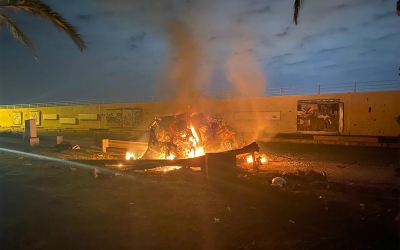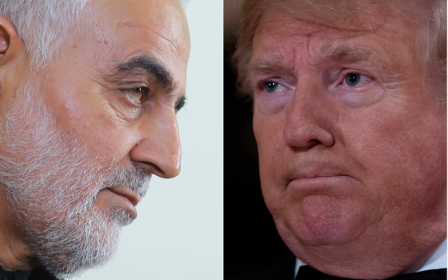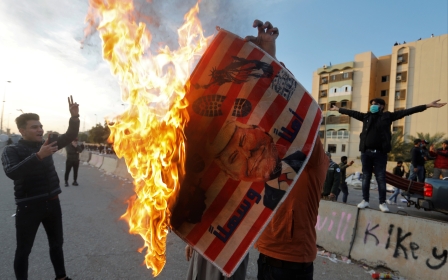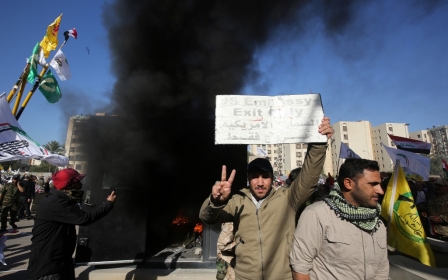Who was Qassem Soleimani?
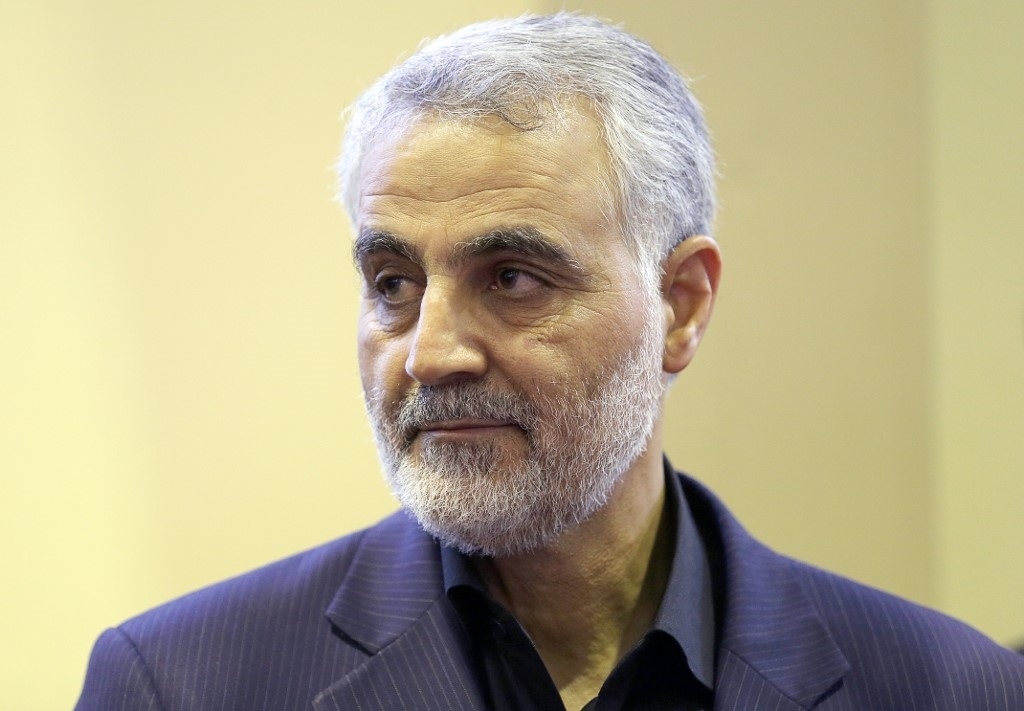
Iranian Major-General Qassem Soleimani, the shadowy top commander of the Quds Force of the Revolutionary Guards, helped Iran fight proxy wars and increase its foothold across the Middle East.
His assassination on Friday in a US air strike on his convoy at Baghdad airport marked the end of a man who was celebrated at home and closely watched by the US, Israel and Tehran's regional rival Saudi Arabia.
From working as a teenager to pay off his father’s debts to a swift rise in Tehran’s elite force, Soleimani, 62, was responsible in the end for Iran’s clandestine overseas operations and was often seen on battlefields guiding Iraqi Shia groups in the war against Islamic State.
He was killed along with top Iraqi militia commander Abu Mahdi al-Muhandis. Both men were seen as heroes in Iran's fight against its enemies and state television heaped them with praise after their deaths were announced. A Revolutionary Guards spokesman cried during a live broadcast on Friday.
Images were aired showing footage of Soleimani with Iran's Supreme Leader Ayatollah Ali Khamenei and in war zones, including as a young high school graduate commanding a unit in Iran's war with Iraq in the 1980s, during which he was wounded at least once.
Soleimani rose rapidly through the ranks of Iran's Revolutionary Guards to become chief of the Quds Force in 1998, a post in which he helped Iran form regional alliances as it came under pressure from the US sanctions that have devastated its economy.
He kept a low profile in his position while he strengthened Iran’s ties with Hezbollah in Lebanon, Syrian President Bashar al-Assad's government and Shia militia groups in Iraq.
Under Soleimani, the Quds Force shored up support for Assad when he looked close to defeat in the civil war that has been raging since 2011 and also helped militias defeat Islamic State in Iraq.
In the past few years, he had acquired a more public standing, with fighters and commanders in Iraq and Syria posting images on social media of him on the battlefield.
[Translation: Qassem Soleimani, commander of the Quds Forces, in Aleppo, Syria]
'I, Qassem Soleimani'
Soleimani was born into an agricultural family in the village of Qanat-e Malek in southeast Iran in 1957.
At 13, he moved to the town of Kerman to work in construction and help his father pay back loans, according to a first-person account from Soleimani posted by Defa Press, a site focused on the history of Iran’s eight-year war with Iraq.
When the revolution to oust the shah began in 1978, Soleimani was working for Kerman's municipal water department and organised demonstrations against the monarch.
'You should know that I, Qassem Suleimani, control the policy for Iran with respect to Iraq, Lebanon, Gaza and Afghanistan'
- Message sent to US Gen David Petraeus from Soleimani
He volunteered for the Revolutionary Guards and, after war with Iraq broke out in 1980, quickly rose through the ranks and went on to battle drug smugglers on the border with Afghanistan.
At the height of the civil war between Sunni and Shia militants in Iraq in 2007, the US military accused the Quds Force of supplying improvised explosive devices to Shia militants which led to the death of many American soldiers.
In 2008, as the Americans struggled to stabilise the country and were looking for a broker to help, Soleimani wrote to US General David Petraeus, then commanding US forces in Iraq.
"General Petraeus, you should know that I, Qassem Suleimani, control the policy for Iran with respect to Iraq, Lebanon, Gaza and Afghanistan," the commander reportedly wrote in a phone text.
"The ambassador in Baghdad is a Quds Force member. The individual who's going to replace him is a Quds Force member."
Soleimani was arguably even more influential in Syria. His visit to Moscow in the summer of 2015 was the first step in planning for a Russian military intervention that reshaped the Syrian war and forged a new Iranian-Russian alliance in support of Assad.
His activities had made him a repeated target of the US Treasury: Soleimani was sanctioned by the United States for the Quds Force's support for Lebanon's Hezbollah and other armed groups, for his role in Syria’s crackdown against protesters and his alleged involvement in a 2011 plot to assassinate Adel al-Jubeir, then the Saudi ambassador to the United States.
Soleimani’s success in advancing Iran’s agenda had put him in the crosshairs of regional foes Saudi Arabia and Israel even before the US assassination on Friday.
In 2017, top Saudi intelligence officials looked into the possibility of using private companies to kill Soleimani, according to the New York Times.
Middle East Eye propose une couverture et une analyse indépendantes et incomparables du Moyen-Orient, de l’Afrique du Nord et d’autres régions du monde. Pour en savoir plus sur la reprise de ce contenu et les frais qui s’appliquent, veuillez remplir ce formulaire [en anglais]. Pour en savoir plus sur MEE, cliquez ici [en anglais].


